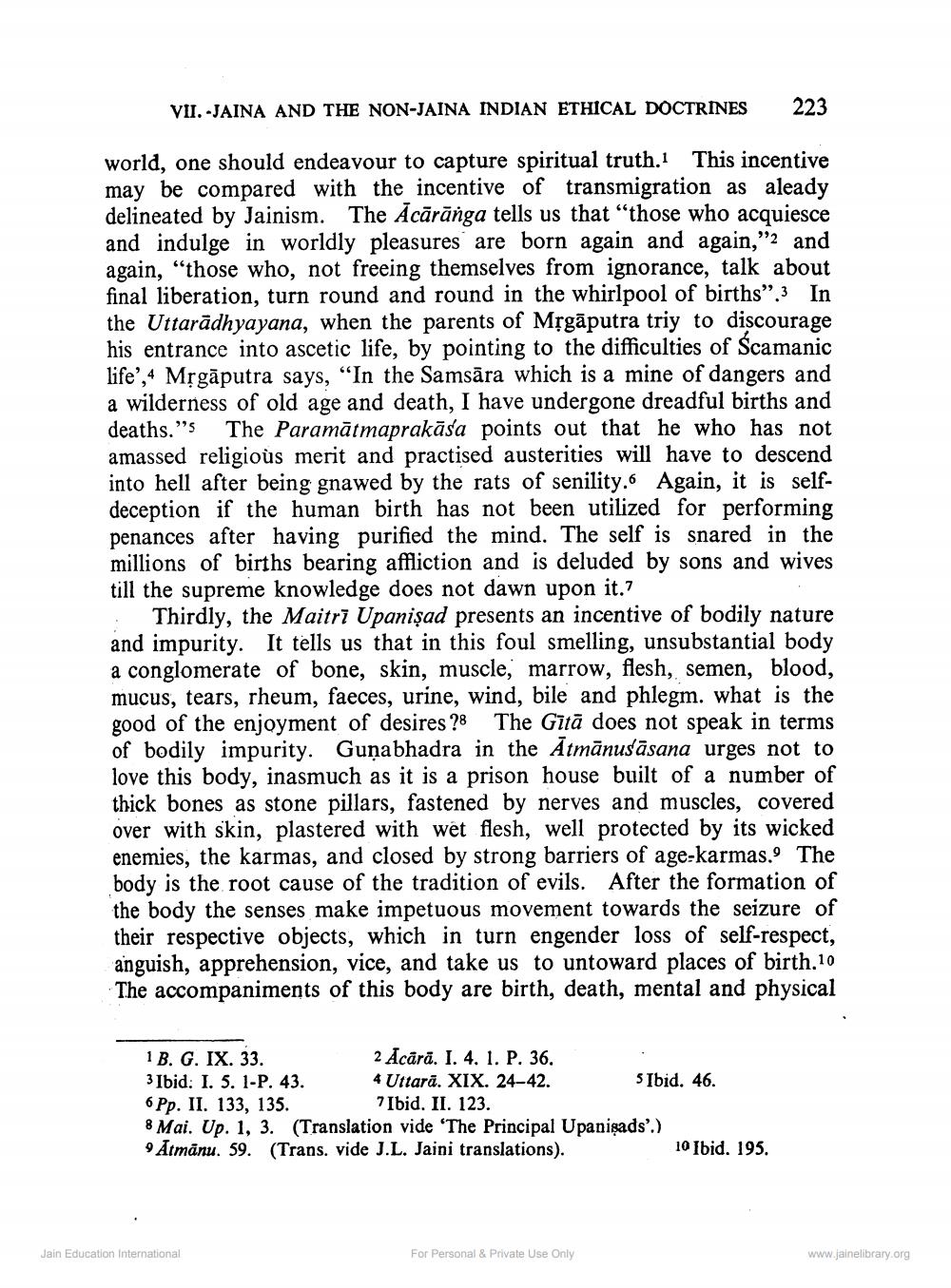________________
VII. -JAINA AND THE NON-JAINA INDIAN ETHICAL DOCTRINES
223
world, one should endeavour to capture spiritual truth. This incentive may be compared with the incentive of transmigration as aleady delineated by Jainism. The Acārānga tells us that “those who acquiesce and indulge in worldly pleasures are born again and again,"2 and again, "those who, not freeing themselves from ignorance, talk about final liberation, turn round and round in the whirlpool of births".3 In the Uttarādhyayana, when the parents of Msgāputra triy to discourage his entrance into ascetic life, by pointing to the difficulties of Scamanic life',4 Mrgāputra says, “In the Samsāra which is a mine of dangers and a wilderness of old age and death, I have undergone dreadful births and deaths." The Paramātmaprakāsa points out that he who has not amassed religious merit and practised austerities will have to descend into hell after being gnawed by the rats of senility. Again, it is selfdeception if the human birth has not been utilized for perform penances after having purified the mind. The self is snared in the millions of births bearing affliction and is deluded by sons and wives till the supreme knowledge does not dawn upon it. : Thirdly, the Maitri Upanişad presents an incentive of bodily nature and impurity. It tells us that in this foul smelling, unsubstantial body a conglomerate of bone, skin, muscle, marrow, flesh, semen, blood, mucus, tears, rheum, faeces, urine, wind, bile and phlegm. what is the good of the enjoyment of desires ?8 The Gītā does not speak in terms of bodily impurity. Guņabhadra in the Atmānusāsana urges not to love this body, inasmuch as it is a prison house built of a number of thick bones as stone pillars, fastened by nerves and muscles, covered over with skin, plastered with wet flesh, well protected by its wicked enemies, the karmas, and closed by strong barriers of age-karmas. The body is the root cause of the tradition of evils. After the formation of the body the senses make impetuous movement towards the seizure of their respective objects, which in turn engender loss of self-respect, anguish, apprehension, vice, and take us to untoward places of birth.10 The accompaniments of this body are birth, death, mental and physical
1 B. G. IX. 33.
2 Acārā. I. 4. 1. P. 36. 3 Ibid: 1. 5. 1-P. 43. 4 Uttarā. XIX. 24-42.
5 Ibid. 46. 6 Pp. II. 133, 135.
7 Ibid. II. 123. 8 Mai. Up. 1, 3. (Translation vide 'The Principal Upanişads'.) 9 Atmānu. 59. (Trans. vide J.L. Jaini translations).
10 Ibid. 195.
Jain Education International
For Personal & Private Use Only
www.jainelibrary.org




